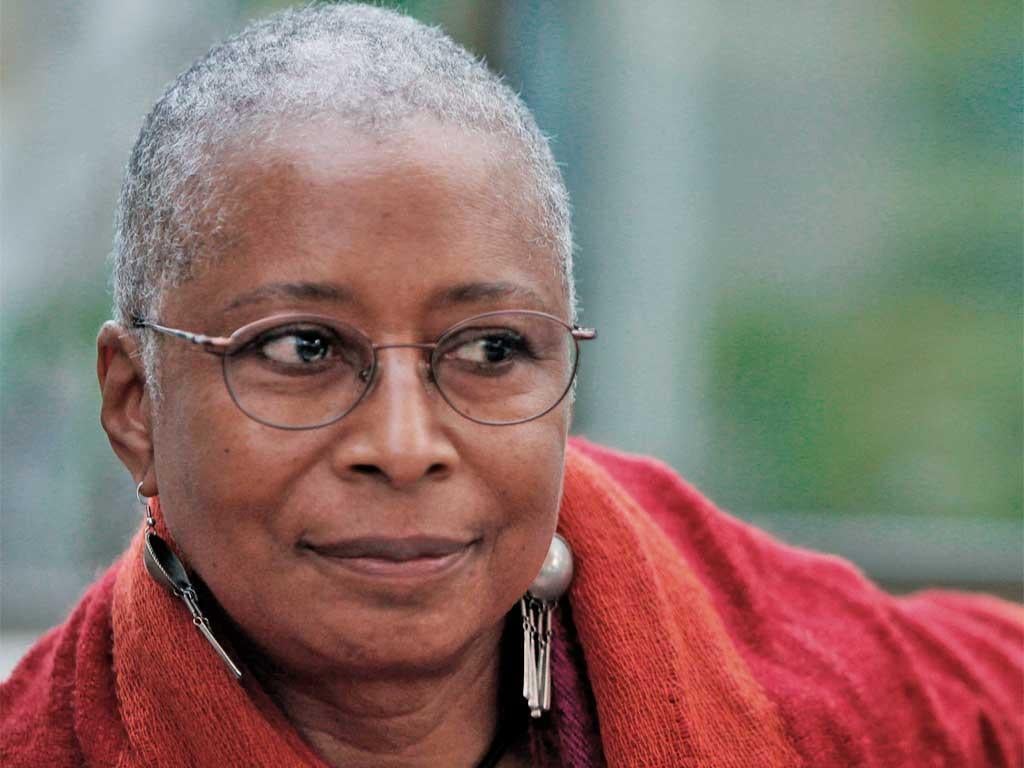Alice Walker refuses to allow Israelis to publish edition of Color Purple
Pulitzer Prize-winner cites 'apartheid and persecution of the Palestinian people'

Your support helps us to tell the story
From reproductive rights to climate change to Big Tech, The Independent is on the ground when the story is developing. Whether it's investigating the financials of Elon Musk's pro-Trump PAC or producing our latest documentary, 'The A Word', which shines a light on the American women fighting for reproductive rights, we know how important it is to parse out the facts from the messaging.
At such a critical moment in US history, we need reporters on the ground. Your donation allows us to keep sending journalists to speak to both sides of the story.
The Independent is trusted by Americans across the entire political spectrum. And unlike many other quality news outlets, we choose not to lock Americans out of our reporting and analysis with paywalls. We believe quality journalism should be available to everyone, paid for by those who can afford it.
Your support makes all the difference.The celebrated US author Alice Walker has refused to allow a new Israeli edition of her Pulitzer Prize-winning novel, The Color Purple, in protest at what she calls Israel's policy of "apartheid and persecution of the Palestinian people".
The African-American writer, who is active in the international Boycott, Divestment and Sanctions (BDS) campaign against Israel, has written to the Israeli publisher, Yedhiot Books, saying she cannot permit publication of the book "at this time".
In the letter, made public by the Palestinian Campaign for the Academic and Cultural Boycott on Israel, she invokes a comparison with the decision not to show the 1985 Steven Spielberg film of her novel in South Africa before the end of apartheid. A version of Ms Walker's classic story of an abused black woman set in the segregated US Deep South of the early 20th century was published in Hebrew in the 1980s.
But she says the testimony heard last year from Israelis and Palestinians by the private Russell Tribunal on Palestine, of which she was a member, was "devastating". The tribunal, which investigates alleged war crimes, has no legal status and is modelled on one set up during the Vietnam War by the philosopher Bertrand Russell and other intellectuals.
Ms Walker adds that having grown up "under American apartheid" she found that Israel's treatment of the Palestinians was "far worse". The use of the term "apartheid" to describe the treatment of Palestinians arouses fierce antagonism in Israel.
The BDS campaign calls for sanctions against Israel "until it complies with international law and Palestinian rights" and goes significantly further than a separate and parallel campaign for the boycotting of goods produced in settlements in occupied territory, which are widely regarded as illegal in international law. Ms Walker says she hopes the BDS campaign "will have enough of an impact on Israeli civilian society to change the situation".
In her letter, Ms Walker thanks the publisher – an offshoot of the mass-circulation daily newspaper Yedhiot Ahronot – "so much" for what she says is its wish to publish her novel. She adds: "I would so like knowing my books are read by the people of your country, especially by the young, and by the brave Israeli activists (Jewish and Palestinian) for justice and peace I have had the joy of working beside. I am hopeful that one day, maybe soon, this may happen. But now is not the time."
Join our commenting forum
Join thought-provoking conversations, follow other Independent readers and see their replies
Comments